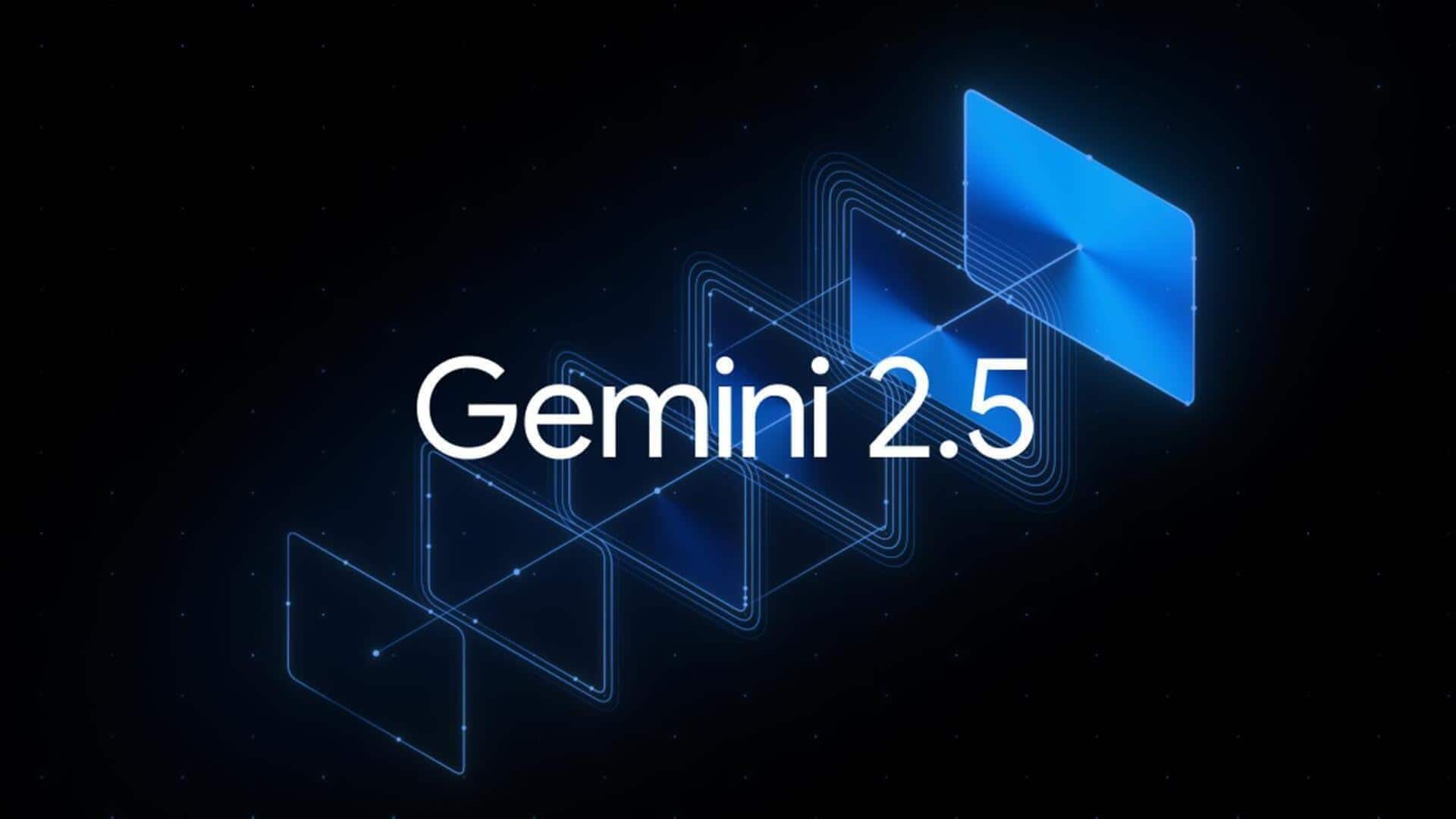
Meet Google's fastest, cheapest AI model yet—Gemini 2.5 Flash‑Lite
What's the story
Google has expanded its Gemini AI model family with the stable release of Gemini 2.5 Pro and Flash. The new models are now available for developers to build on, marking a major milestone in Google's AI journey. Gemini 2.5 builds on Google DeepMind's hybrid-reasoning architecture, aiming to deliver powerful AI reasoning capabilities with improved efficiency and speed across multiple applications. The tech giant also previewed its upcoming high-efficiency model, dubbed Gemini 2.5 Flash-Lite. This cost-friendly model was earlier in experimental stage.
Technological advancement
Gemini 2.5 Pro takes on OpenAI's GPT models
The Gemini 2.5 Pro mod, now available in stable form, is a major upgrade over its predecessors, making Google more competitive with OpenAI and its popular GPT models. It is positioned as the flagship model, offering enhanced creative, conversational, and coding capabilities. It now includes a "configurable thinking budget" feature that lets developers balance speed and computational resources. This addresses previous issues in long-form coherence and formatting, making the model more reliable for production use.
Cost efficiency
Preview of Gemini 2.5 Flash-Lite model
Google is also introducing Gemini 2.5 Flash-Lite, an experimental AI model. Currently in preview stage, it is the fastest and most cost-effective model in the 2.5 family. It maintains key capabilities—multimodal reasoning, tool access, and reasoning "thinking" mode—while dramatically reducing latency and pricing. It costs about $0.1 per million input tokens and $0.4 per million output tokens. In comparison, 2.5 Pro costs $1.25 per million input tokens and $10 per million output tokens.
Search integration
Custom versions of Flash models now in search
These updates mark Gemini 2.5's widespread availability across Google AI Studio, Vertex AI, and the consumer Gemini app. Custom versions already power parts of Google Search. The release solidifies Gemini's position in the competitive AI landscape alongside OpenAI, Anthropic, and others, as Google expands its "thinking" model arsenal for developers and users.